Against the “World Wide Three Places”: A Conversation with Marina Kittaka
An approach to game design that resists the attention economy and encourages attunement to the environment
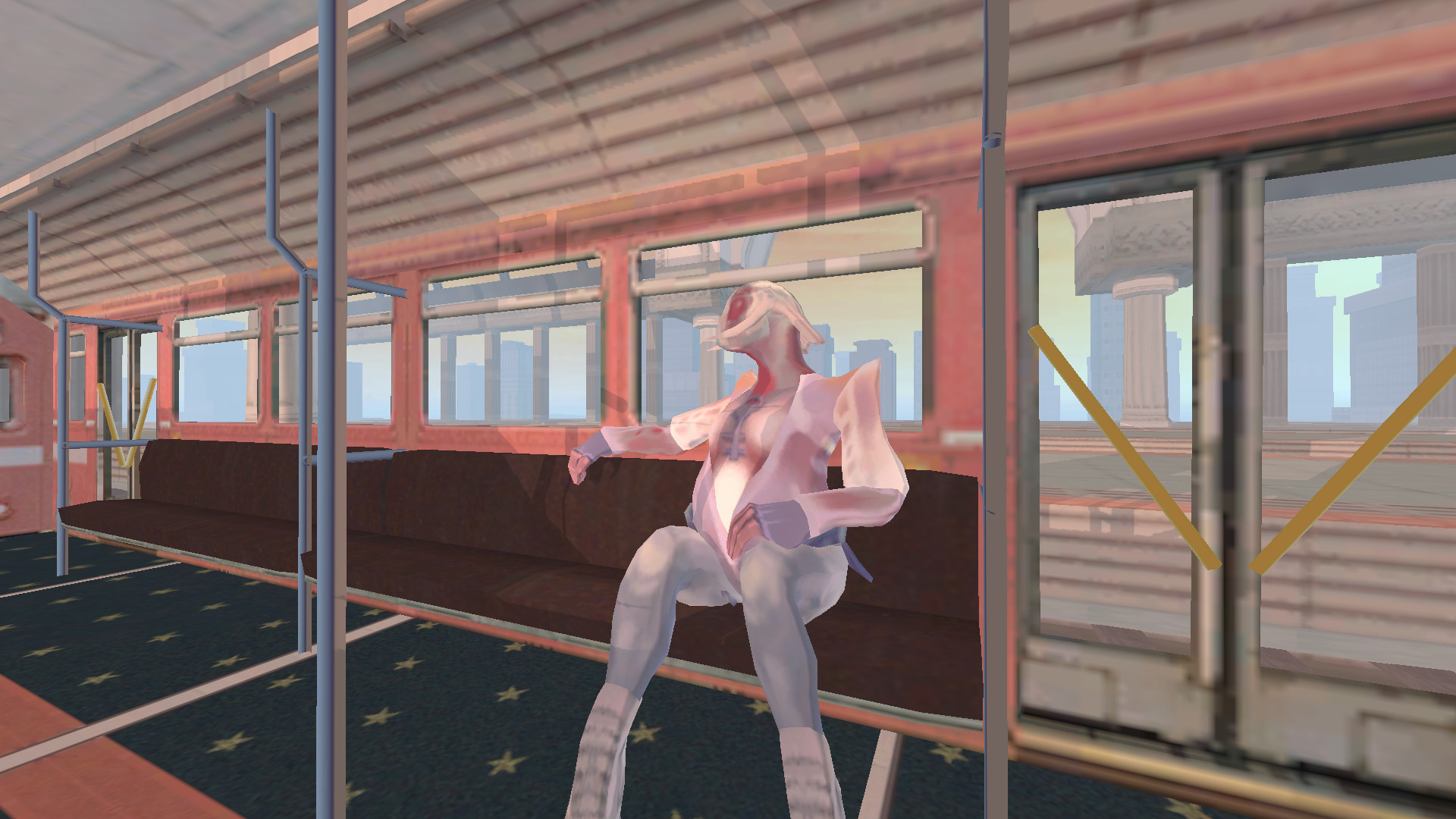
I first encountered Marina Ayano Kittaka’s work at Play/Test, a monthly event hosted by the local games organization Glitch where game developers can demo works in progress. Since meeting Marina in 2018, her video games, writing, and digital projects have helped me, and others, imagine new possibilities for how to exist in the wider video games industry and digital life. Marina Kittaka is a Twin Cities-based game developer and artist, most known for her work at Analgesic Productions, a game development studio she co-created with her co-developer Melos Han-Tani. She is perhaps most known as being the co-creator of the Anodyne series, and more recently Sephonie. Outside of her game development work, Marina created the microblogging platform Zonelets, where she helps others in imaging and creating vibrant online worlds.
ANA DIAZI think a good place to start is the very idea of the video game industry. It’s video games that much of our audience might be familiar with. It’s the side of $68 billion deals, like when Microsoft acquired Blizzard. It’s games like Fortnite and franchises like Call of Duty and Mario. However, as we both know, the video games space is much more diverse than big budget Marvel-esque games. Game developers include part-time hobbyists, students, contractors, independents, artists, collectives, and local scenes. So where would you situate you and your work in this giant web of game development?
MARINA KITTAKAWhen I was growing up, I was exposed to a hobbyist scene of game development through the internet communities surrounding various game engines, like Game Maker. And so from an early age I was aware of the fact that one person or a small team of people could make games.
And so, in some ways, I feel like I am still working in that hobbyist mindset of random people on the internet, although I do for the most part do video games as my job. But then there are definitely other ways in which the act of creation feels different when you do it all the time, versus when it’s an escape or your hobby as a child. So it is hard to situate ourselves. I often tell people that I feel like I’m in this strange, in-between zone, a type of a creator that I don’t see a lot out in the world, necessarily. The particular kinds of values that Melos and I have developed together as a studio resonates more often with small artist collectives or hobbyist developers than the main industry.
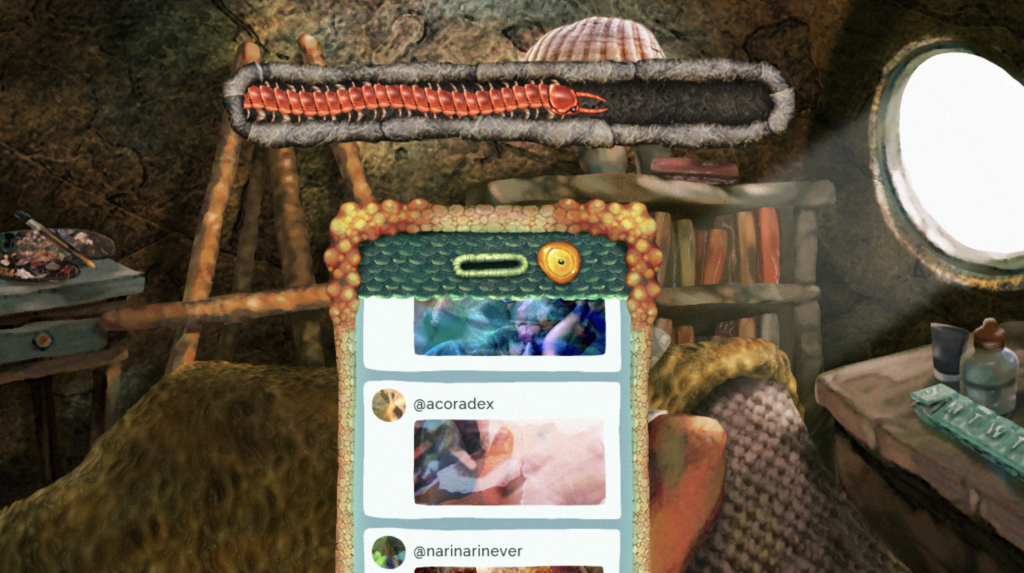
ADFrom my perspective, a lot of your work involves making the digital world more habitable. What are some systemic issues in digital life that you see? And how does your work speak to it?
MKI think what frustrates me about digital life is how there are increasingly just a few large platforms and spaces within which to exist on the internet. And these platforms exert a really powerful force on both the experiences that you have on them, what they draw out of you creatively through the algorithms, and the kind of management decisions of the people who control the platforms. A lot of the time, we don’t even know what those algorithms and what those decisions are [directed] at.
And so, you get a lot of creators—some people do it very consciously—on sites like YouTube or Instagram, who are often trying to feed the algorithm, to figure out what is being asked of them and what is being required of them. But I think even beyond that, it’s impossible to not be subconscious, understanding that certain things get responded to better than other things on various sites and tailor your behavior accordingly.
And on the one hand, that’s just really normal—that’s like living in a society and being affected by the reactions of other people around you. But on the other hand, it’s really different, because those reactions from other people don’t feel like they’re mediated, but they are mediated and changed by whether or not the platform has shown what you send to them. There are so few places, and when everyone’s experiences are mediated by the same algorithms, it can potentially prevent people from getting as deep into the kind of healthy communities and subcommunities, and the conversations that can’t be had in a larger forum.
ADYou made Zonelets, a microblogging platform. And in a recent lecture, you mentioned Zonelets was made as you were thinking about worldwide and local abolitionist movements, including the one to abolish the police here in the Twin Cities. I was wondering if you could talk more about how an abolitionist movement could inspire work like Zonelets.
MKSo, I wrote this essay, “Divest from the Video Games Industry.” That was very inspired by experiences that I had seen happening in the Twin Cities and around the country. I think, in a very broad sense, it was about this capacity to question systems that feel very embedded, and to take the opportunity to imagine how things could be different.
I had finally spent enough time on the periphery of the games industry that I had started to see certain patterns emerge, in terms of the ways that power was abused and that people’s passions for video games, specifically, were abused. So it got me thinking about alternate kinds of resources and value systems that would exist in a kind of healthier world with relation to technology and making games.
The video games industry over the past decades has always been really tied into the tech industry, and really focused on this idea of technological progress as a way of generating capital and support. And technological progress has always been really intertwined with the dreams and desires of a really specific subset of very rich people, and has been focused around power and scale, and other buzzword-y things that capture the imagination of the rich. And so, one thing that I was trying to do in the essay was to think of alternate versions of what technological progress could look like.
ADWhen we move away from less centralized forms of communication, like Twitter and Facebook, and we embrace something where people can lean into the more idiosyncratic sides of themselves, what kinds of shifts could we perceive? Or what shifts have you seen yourself as you create your own spaces online?
MKI think that working on writing on my own blog gives me a sense of groundedness and context. Because you can really look back on it and see how certain ideas are being developed, that then can make it into my other types of projects. And ideas can get developed on social media sites, but it’s actually really hard to filter through the noise and, even just on a technical level, to go back and find your old posts—it’s not easy.
And so there’s this sense of losing a lot of those threads of thought. It makes it hard to develop and build on the threads that you find in your thoughts or in other people’s thoughts. If I really remember a good blog post from a friend, and I think, “What was the context for that quote?” I can then go to their blog and see. And oftentimes, their blog is linked to other sources or books that they were reading. And there’s just this opportunity to trace the lineage of ideas in ways that lets you find more new things through this network. And I think the experience that I value is, you know, the World Wide Web as a web, and not just as the “World Wide Three Places.”
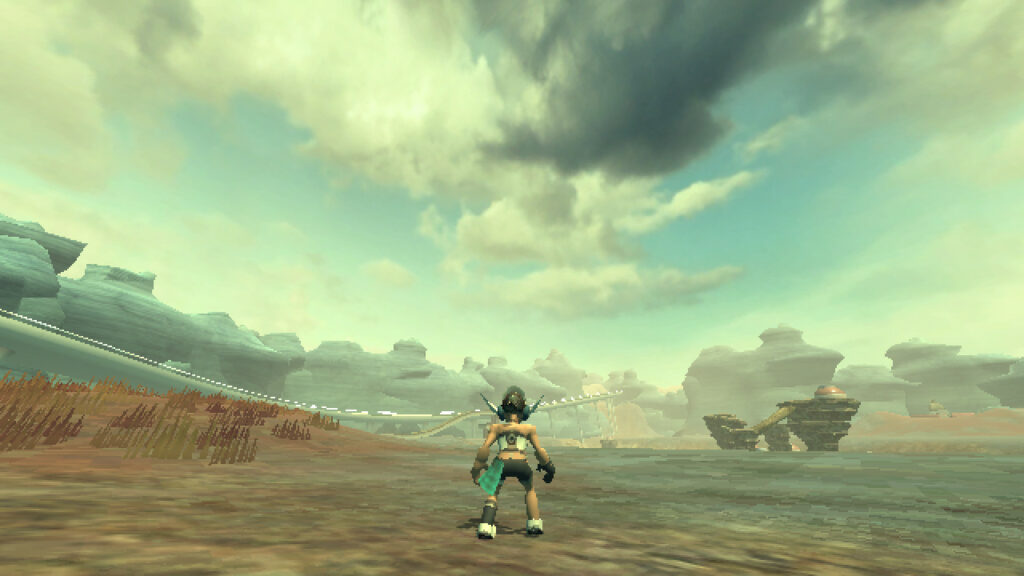
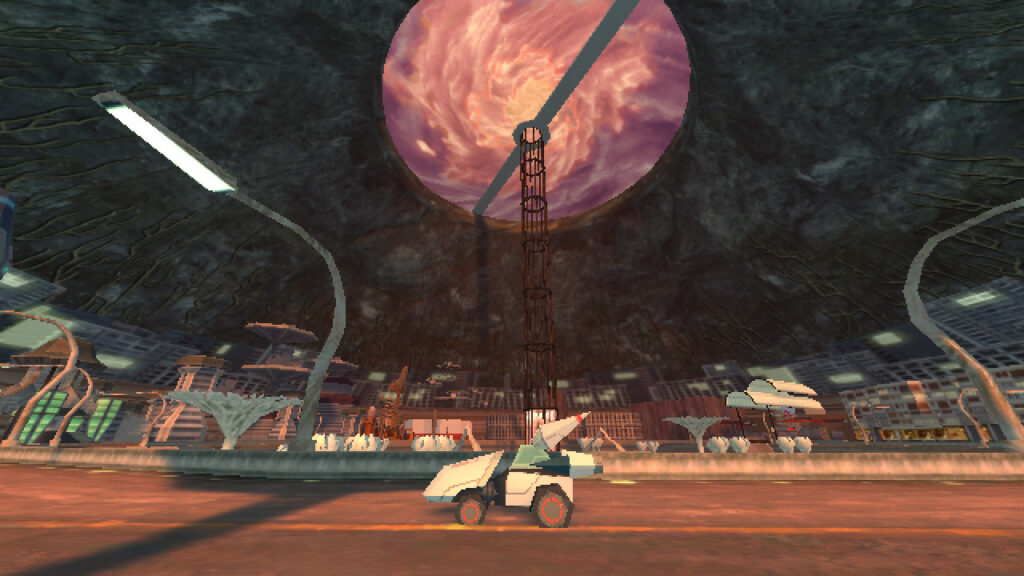
ADI want to shift more towards talking about Sephonie, starting with a question for the parental readers. A lot of people might think that video games are at odds with being outside and being attentive. Like video games are almost the opposite of paying attention. How do you make games that prompt us to be more attentive?
MKI’ll say one thing that comes to mind first—the capacity of media to be a way to essentially zone out is something that we’re always in dialogue with. And that’s especially related to the themes of our first game, Anodyne. “Anodyne” is a painkiller. And that name has always been like a mix of honest and ironic. We do know that there are different reasons that people come to a video game. And that some people approach it as just like, a way to turn off their brain and do things with lights on a screen for a while. That’s completely a part of it and that’s not a false engagement with the work. But at the same time, we do try to create a transitional space where it can be that, and it can also be something that is there for the player when they want to think about different things, in terms of themes of the game.
And there are definitely other things that I can say about Sephonie—
ADJust follow it.
MKYeah, okay. There’s two very different paths that I could go down and they’re kind of mutually exclusive.
ADIs there a path that interests you more?
MKYeah, I guess I’ll talk about the art. This actually goes back to the blog thing. I wrote a blog post about an idea that I called “shape-meaning resonance,” and it’s kind of inspired by the old adage, “If all you have is a hammer, then everything looks like a nail.”
I thought that was a really interesting way of describing what a lot of video games do, where your particular character has some sort of exaggerated property or ability that is very specific. And the fact that you can use your very specific abilities to interact with the world creates this whole unique lens that colors your perception of all the kinds of shapes and objects and spaces that create that world.
But basically in Sephonie, you have a set of moves that was very inspired by, among other things, the Tony Hawk’s Pro Skater video game series. And so it’s this kind of acrobatic, parkour-esque set of abilities where you can run on a lot of walls and vault off of walls to get more height. And as you develop your familiarity with those abilities and what they can do, you start to see the spaces around you in a different way than if you just had regular-person-walking-around abilities.
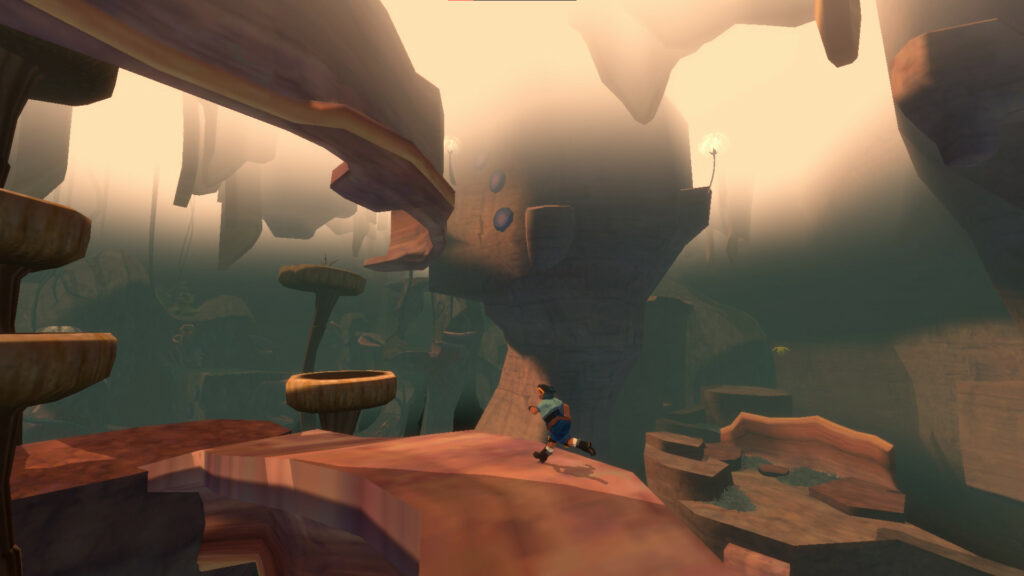
ADI mean, I love that, because I think that’s what stuck out to me about playing Sephonie. It’s not a puzzle in a traditional sense. And there’s a bunch of ways one could get from one side of the island to the other—but trying to get from one end of a cliff to another floating platform makes me more attuned to the island and its combination of geological and biological features.
On that note, one of the reasons that I like playing video games is that a lot of video games involve movement, and I think moving in a 3D space is often an enjoyable experience. I was wondering what you see as the relationship between the way we move through Sephonie, and the larger themes of the game—or what you want to communicate artistically through that movement?
MKSephonie is a game about borders, essentially, and we explore that. On the one hand, there are these three main characters who are all Taiwanese, but one is Taiwanese-American, one is living in Tokyo, and the other is living in Taiwan. So they are coming on this research trip as representatives of different countries, and as people affected by this idea of nations and borders and separation in that sense. And then, on another level they experience this close connection with the ecosystem on the island Sephonie.
That causes them to question on a personal level what the boundaries are between ourselves and other people, and our bodies as organisms and other organisms. To put it more simply, I think the act of paying close attention changes what you see. We wanted to give that sense of connecting with an ecosystem.
ADAt least in my own perspective, it really did feel like moving through the environment. The way we move through the game helps attune us to the island—rather than, say, using movement as a way to conquer the environment or take resources from it.
Right now, I’m thinking of The Legend of Zelda: Breath of the Wild. It’s very beautiful and inspired by nature in a way, but in Breath of the Wild, you can drive a roaring motorcycle through the world, and it feels awful. When I played, I was like, “Wait, what is what is going on? Like, I’m running over everything?” And so, in contrast to that, it’s nice to play a game like Sephonie, where the movement feels joyful, but it also serves as a vehicle to get us to pay attention to the details, rather than a way to escape them. Oftentimes, critiques of the attention economy are aimed at social media sites, but video games are guilty of exploitative practices as well. Games like Genshin Impact ensnare players in gameplay loops that trade real-life time and grinding for in-game currency that can be used to gamble for characters. Features like loot boxes and battle passes, which enforce specific ways of playing games to maximize time spent online, are common features. How does your work push back against these attention economies?
MKI am constantly feeling a back-and-forth as a person and a creator between what I feel are good values and, on the other hand, a sort of radical acceptance and trying to understand why people do what they do. And so I always have this back-and-forth between questions like, “What are better ways of engaging with the world, or better ways of using and developing your attention?”—and then another half of me is very reactive against this idea of betterment.
I am really frustrated by this idea of trying to fix everyone and do things the right way, or fix myself. These seemingly conflicting, but I don’t know if they’re conflicting values. That tension really drives my work, because there are so many things that I feel strongly about on a visceral level, and it does really bother me—the idea of people’s time and interest and energy being exploited by gambling systems in video games that are imported from the gambling industry.
ADI don’t know, for some reason I’m thinking about work, and how work can take over my life, because I write about the internet and I’m online a lot. And so that kind of blurs those lines, right? I can recognize that addictive platforms hurt me, but that can still be hard to push back against. And so it’s a matter of being like, “Okay, I’m just going to accept that. And if I can, you know, carve out an entire hour when I’m walking outside, when I’m present to other things, maybe that’s enough for now.”
I think there is a valid question of, “Why play the gambling games at all?” Obviously, I have my own weird, conflicting reasons to play it. That may or may not be seen as morally acceptable, and I think that’s fine. For me, I think I would not be able to write about games if games like Sephonie didn’t exist. Because it is like that walk, as far as games go. Sephonie allows me to take that brain space and attention that gambling games like Genshin Impact don’t.
MKI think, especially as I get older, I do want to have very specific values—and values not in the sense of what’s right and wrong, but values in the sense of, “How can I invest a lot of energy into certain ideas and certain ways of being?” And others can engage with that or not. I grew up with this very evangelical Christian background. And so I think for me, it’s really hard to uncouple a strong commitment to something from this idea that I am necessarily proselytizing it to other people, to make them feel like they need to do things my way. It’s almost like I don’t want to commit to my own ideas, because I don’t want to shame anyone.
And I do think that it’s funny being a game designer, because there are different approaches you can take. Whenever we implement a feature that we think goes against the grain a little bit, or is not what is necessarily expected from mainstream games, you have to like dom the player a little bit and say “You’re gonna like this.” And I think that’s a really valuable thing. People like being dommed, because it’s consensual, you know? It’s what you’re engaging with—it’s not like me making a game that controls your life. So I’m trying to lean into that energy a little more, being the old person with these strong intentions, without saying the kids are bad or whatever for the things they like.